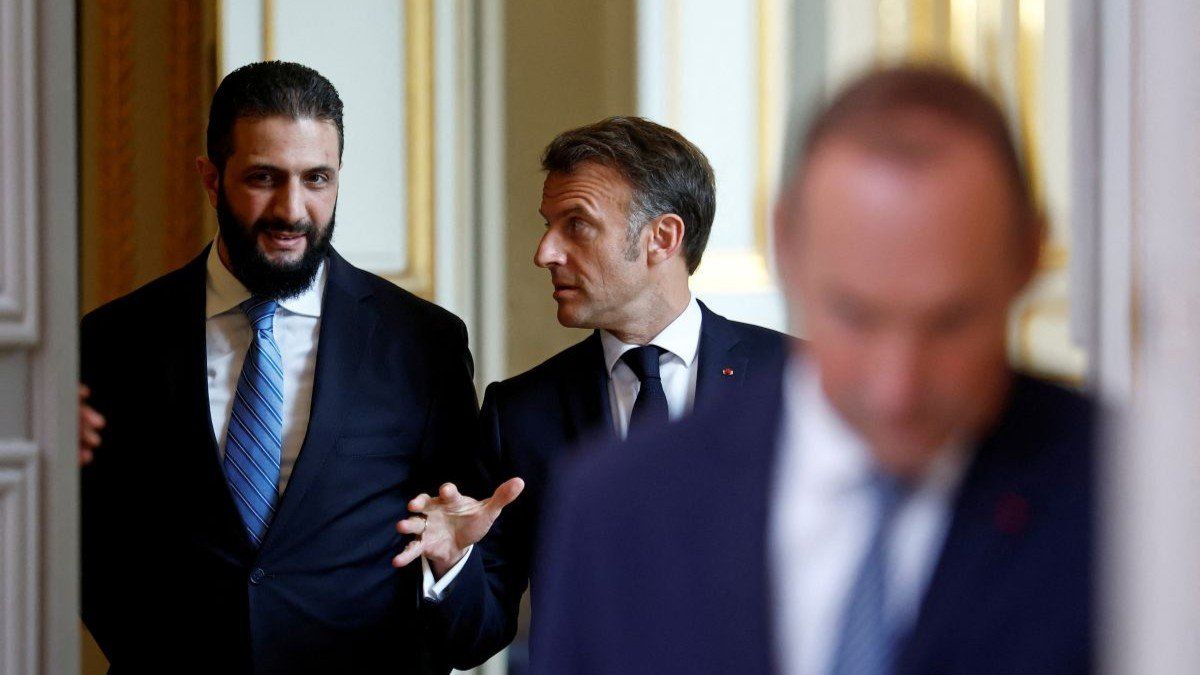Syria’s interim president Ahmed al-Sharaa, the former jihadist whose forces overthrew the dictatorship of Bashar al-Assad last December, met on Wednesday with French President Emmanuel Macron. It was his first trip to Europe.
The upshot: The French president said he would push for the lifting of EU sanctions – which have been in place since 2011 – if al-Sharaa continued on a path of reform and reconstruction that respected the rights of Syria’s religious minorities. He said he’d also lobby the US to follow suit.
The goal: France, with regional players Saudi Arabia, Qatar, and Turkey, favors swift relief from Western sanctions against Syria to speed the rebuilding of a country wrecked by civil war and mass emigration.
But the US has been more cautious, giving Damascus a list of conditions for sanctions removal that include icing out Iran, expelling Palestinian groups, and giving the American military a free hand in Syria.
The bombshell: During the meeting, Al-Sharaa revealed Syria has been holding indirect security talks with Israel. That’s a big deal: since Assad’s fall, Israel has bombed Syrian military sites, expanded a “buffer zone” into the country, and conducted airstrikes on behalf of Syria’s Druze minority.
Any prospect of an accord with Israel – which is
deeply suspicious of Damascus’ intentions – would significantly improve Syria’s prospects of stability and prosperity.
